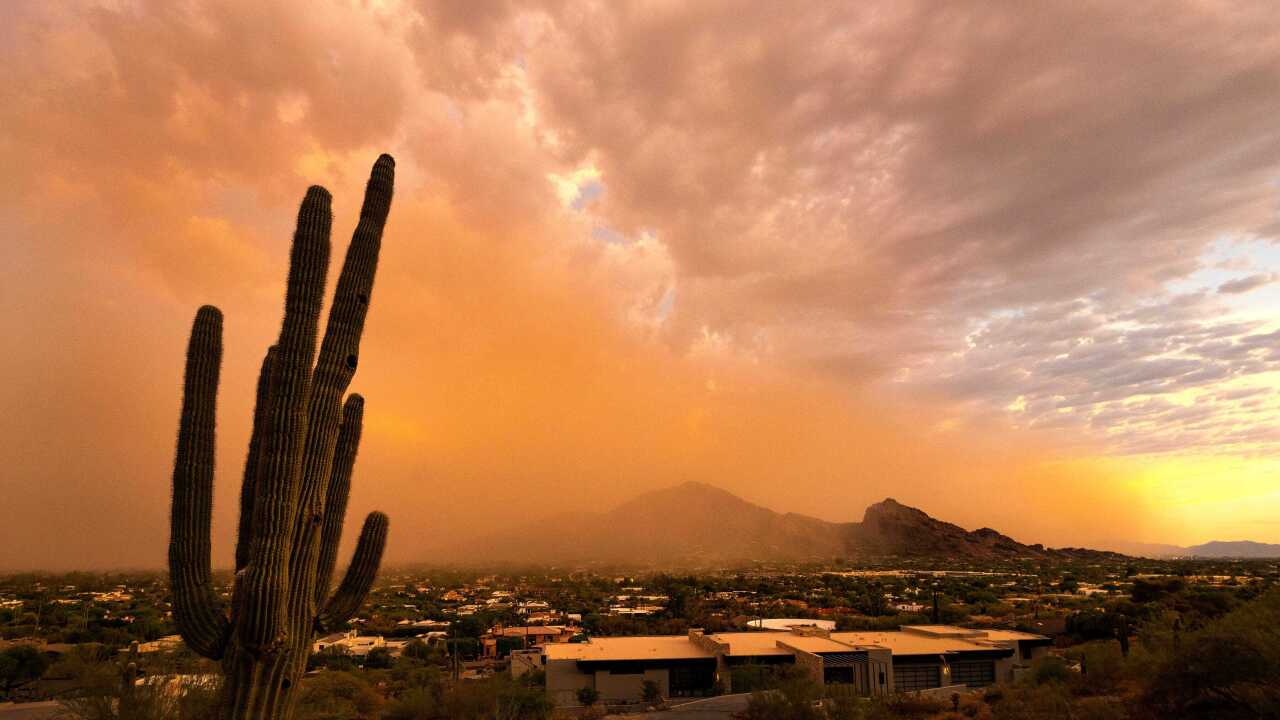Key Points
- Australia recorded its warmest winter on record in 2023, with experts warning of a dangerously hot and dry spring.
- The federal government has approved a major coal mine expansion in Queensland, drawing the ire of environmentalists.
- It is the government's third approval relating to coal projects this year, and will extend the mine's life to 2073.
Australia’s winter this year was the warmest on record, with global heating at least partly contributing to above-average maximum temperatures across the entire country.
The unseasonable warmth, which was 1.53C higher than the long-term average, made the 2023 winter Australia’s eleventh in a row that was hotter than the 30-year average, according to data released by the Bureau of Meteorology on Friday.
A day earlier, the Bureau forecast a and warned of an increased risk of bushfires in five of Australia’s states and territories. It similarly noted a warmer climate was increasing the risk of extreme weather events.
Around the same time these troubling findings and forecasts were being released, the federal government on Thursday approved a major coal mine expansion in central Queensland – its third approval relating to coal projects this year.
The extension to the Gregory Crinum coal mine, which is located in the Bowen Basin, will allow its owner, Sojitz Blue, to construct, operate, and decommission a coking coal operation at the site until 2073.
Environmental research groups condemned the government’s decision to approve the mine extension, which also came just one week after Climate Minister Chris Bowen toured the Pacific to promote Australia as a country that was “delivering real action on climate change”.
Environmental organisation: extension 'beggars belief'
The Australian Conservation Foundation labelled it a reckless act.
“Following the hottest July on record, as we’ve watched climate change wreaking havoc in Canada, Hawaii, Greece and Italy – and with Australia’s Bureau of Meteorology warning of a dangerous spring and summer ahead of us – it beggars belief that the government would approve a 50-year coal mine extension,” said the foundation’s CEO, Kelly O’Shanassy.
The Climate Council, an independent organisation focused on climate science, impacts, and solutions, expressed similar outrage, describing the government’s actions as a display of “stunning hypocrisy”.
“The cognitive dissonance is stunning,” said Climate Council head of advocacy Jennifer Rayner. “It makes zero sense to have one hand claiming Australia is a global leader on action on climate while the other is busy rubber stamping 50 more years of coal.”
The organisation’s chief executive, Amanda McKenzie, said the coal mine approval “shows our environment laws are absolutely broken”.
What is the Gregory Crinum mine?
The Gregory Crinum mine produces metallurgical coal, which is used in steelmaking. The coal, exposed to extremely high temperatures, is converted into a near-pure carbon product called coke, which is then combined with iron ore to create a liquid metal that’s used to strengthen steel.
Metallurgical coal is generally considered to be less 'dirty' than thermal coal – which is burned to generate electricity – leading some to suggest that metallurgical coal mining projects should be exempt from many of the criticisms and condemnation levelled at the coal mining industry overall.
Rod Campbell, research director at the Australia Institute, however, has outlined a number of ways this argument misses the big picture – noting, for one, that digging up and burning fossilised carbon in any form releases fossil fuels into the atmosphere and contributes to climate change.
“Greener approaches to steel exist … Sweden is going hard at it,” Campbell wrote in a recent piece for Crikey. “But it doesn’t help when a significant supplier like Australia expands its metallurgical coal supply, making dirty steelmaking cheaper and reducing incentives to switch to cleaner methods.”
Australia supplies 61 per cent of the world’s traded metallurgical coal.
Regarding the Gregory Crinum mine specifically, Campbell said he was not surprised by the federal government’s decision to greenlight the expansion, saying it had already received approval from the Queensland government.
“At every step along the way this new coal expansion proposal should have been stopped, because that’s what climate action requires. But it wasn’t stopped,” Campbell said, according to the Guardian. “This can’t be allowed to continue. Either the law needs changing or the government needs to get more creative in interpreting and using the existing laws.”
Plibersek defends mine extension
Environment minister Tanya Plibersek defended the extension of the Gregory Crinum mine, saying the approval was decided upon in accordance with “the facts and the national environment law”.
She also pointed out that she was the first Australian environment minister to stop a coal mine – another central Queensland development proposed by Clive Palmer – and cancelled approvals for two others.
“We’re committed to supporting a global transition to renewables,” Plibersek said. “It’s cheaper and cleaner.”
With Australia on track to miss its promised climate targets, and fossil fuel emissions rising when they need more urgently than ever to be falling, some remain sceptical that such “commitment” is being delivered on.












